If you’re an entrepreneur looking to start a business, you may have heard of accelerator startups and venture capitalists. These entities can play a significant role in the success of your business by providing funding, mentorship, and other resources. Accelerator startups provide a structured program to help early-stage startups grow and succeed. They typically offer funding, mentorship, and access to a network of investors and other entrepreneurs.
On the other hand, venture capitalists are investors who provide funding to startups in exchange for equity in the company. They typically invest in companies with high growth potential and are willing to take on higher risk levels for a higher return on investment. Venture capitalists can provide significant funding to help startups scale their business, but they also expect high involvement in the company’s operations.
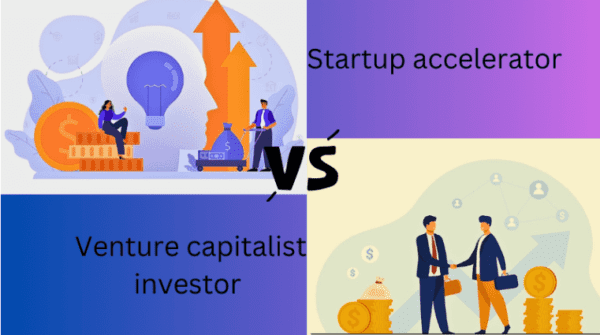
Understanding Accelerator Startups
Accelerator startups are a popular way for early-stage companies to gain traction and resources to launch their products or services. These programs provide mentorship, education, and networking opportunities to help startups succeed. This section will explore the critical components of accelerator programs and some of the top accelerator programs worldwide.
Critical Components of Accelerator Programs
Accelerator programs typically last for several months and include a variety of resources and services. Some of the critical components of accelerator programs include:
- Mentorship: Accelerator programs provide access to experienced mentors who can guide startups through the challenges of launching a new business. Mentors may advise on product development, marketing, fundraising, and more.
- Education: Accelerator programs often include workshops, seminars, and other educational opportunities to help startups develop their skills to succeed. Topics may include business strategy, financial planning, and legal issues.
- Network: Accelerator programs provide startups access to a network of investors, industry experts, and other entrepreneurs. This can help startups build relationships, find new customers, and raise funding.
- Launch Services: Accelerator programs may provide startups various launch services, such as marketing and PR support, website development, and product design.
- Success: Accelerator programs measure success by the traction and growth of their alum companies. The success of the alums reflects the success of the accelerator program.

Top Accelerator Programs Worldwide
There are many accelerator programs worldwide, but some of the best-known and most successful include:
- 500 Startups: Based in Silicon Valley, 500 Startups is one of the most famous accelerator programs. They provide mentorship, education, and funding to early-stage companies.
- Techstars: Techstars offers a variety of accelerator programs focused on different industries, including healthcare, fintech, and more. They provide mentorship, education, and funding to early-stage companies.
- Y Combinator: Y Combinator is one of the most prestigious accelerator programs and has helped launch companies like Airbnb, Dropbox, and Reddit. They provide mentorship, education, and funding to early-stage companies.
- Founders: Founders provide mentorship, education, and funding to early-stage companies. They focus on startups in the healthcare, education, and sustainability industries.
- Growth is a startup accelerator program that targets companies developing sustainable solutions to global problems. It provides mentorship, education, and funding to early-stage companies.
These accelerator programs offer various benefits to startups, including access to mentorship, education, and networking opportunities. By participating in an accelerator program, startups can gain the necessary resources to succeed and grow their businesses.
The Role of Venture Capitalists
Venture capitalists (VCs) play a crucial role in the startup ecosystem. As investors, VCs provide capital to early-stage startups with high growth potential; they receive equity in the company. In this section, we will discuss VC investment strategies and relationship-building practices.
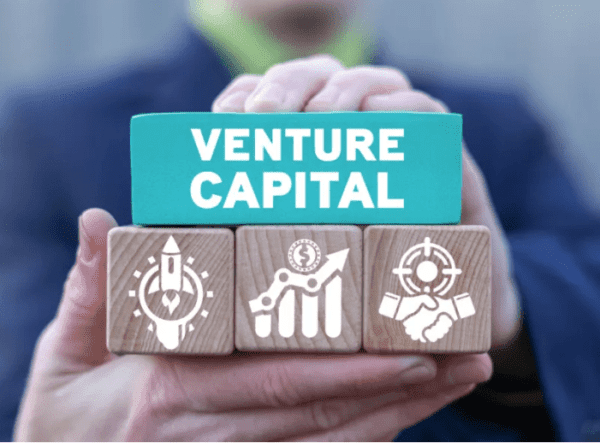
Investment Strategies
VCs use various investment strategies to fund startups. Standard techniques include seed investment, convertible notes, and equity financing. Seed investment involves providing capital to startups in exchange for equity. Convertible notes are a type of debt that can be converted into equity later. Equity financing consists of buying equity in a company in exchange for capital.
VCs typically invest in those with high growth potential. They seek a unique product or service, a large addressable market, and a strong team. VCs also look for a clear path to profitability and a plan for scaling their business.
Building Relationships with Startups
Building relationships with startups is a critical part of a VC’s job. VCs often work closely with startups to help them grow and succeed. This can involve mentorship, advice, and connections to other investors and industry experts.
VCs also help startups secure additional funding. They can introduce startups to angel investors and other VCs interested in investing in their companies. VCs also help startups prepare for future financing rounds by guiding financial modelling and pitch preparation.
VCs play a critical role in the startup ecosystem by providing funding, guidance, and connections to early-stage startups. Their investment strategies and relationship-building practices are essential to their success in the industry.

Startup Growth and Scaling
As a startup founder, achieving growth and scaling your business is a top priority. This requires a combination of factors, including a solid product-market fit, effective expansion and scaling strategies, and the right venture capitalist to help you reach your goals.
Achieving Market Fit
Before scaling your startup, you must ensure a solid product-market fit. This means there is a market demand for your product or service, and you clearly understand your target audience.
To achieve product-market fit, you must focus on your product or service and ensure it meets your customers’ needs. This requires understanding your customers’ pain points and how your product or service can solve those problems.
Expansion and Scaling Strategies
Once you have achieved product-market fit, the next step is to focus on expansion and scaling strategies. This includes increasing your traction, exposure, and reach in the market, building your brand, and setting clear goals for your business.
To scale your business effectively, you need to have a solid understanding of your technology and product and effectively leverage them to achieve your goals. This requires a deep understanding of the market, your competition, and your customers.
Working with the right venture capitalist (VC) can also be critical to your success. They can provide the funding and support you need to achieve your goals and help you navigate the challenges of scaling your business. However, choosing a VC who shares your vision and can help you achieve your goals without compromising your values is essential.
Achieving growth and scaling your startup is a complex process that requires a combination of factors, including a solid product-market fit, effective expansion and scaling strategies, and the right venture capitalist. Focusing on critical areas and working with the right partners can help you achieve your goals and take your business to the next level.
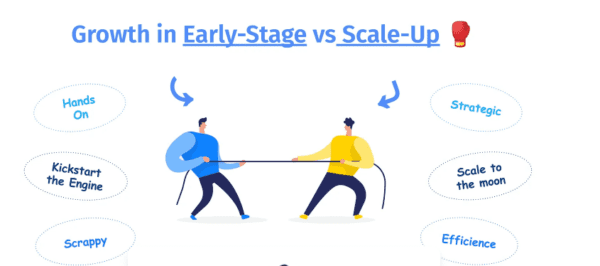
Networking and Mentorship
As a startup founder, networking and mentorship are critical to your success. Accelerator programs provide an excellent opportunity to leverage industry networks and gain access to a community of peers, mentors, and investors.
Leveraging Industry Networks
One of the most significant benefits of participating in a startup accelerator is the opportunity to network with industry professionals. Many accelerator programs offer networking opportunities with successful entrepreneurs, program graduates, venture capitalists, and angel investors. These networks can help you gain valuable insights into your industry, connect you with potential investors, and provide you with access to resources that can help you grow your business.
Mentorship and Guidance for Founders
Mentorship is an essential component of startup success. Accelerator programs provide founders access to experienced mentors who can offer guidance and support. Many accelerator programs offer mentorship through workshops, one-on-one sessions, and peer-to-peer networking opportunities. These mentorship programs can help founders navigate the challenges of starting and growing a business, provide valuable insights, and help them avoid common pitfalls.
In addition to mentorship, accelerator programs offer founders guidance and support. Many programs provide founders access to workshops, classes, and other resources that help them develop their skills and grow their businesses. These resources can help founders learn everything from business strategy and marketing to product development and fundraising.
Networking and mentorship are critical to startup success. Accelerator programs provide an excellent opportunity to leverage industry networks and gain access to a community of peers, mentors, and investors. Participants can gain insights into their industry, connect with potential investors, and receive guidance and support from experienced mentors.
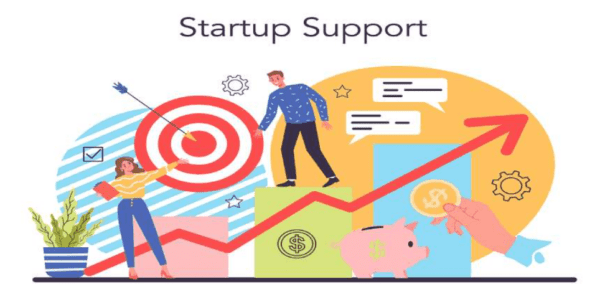
Success Stories and Case Studies
Successful Accelerator Alumni
Accelerators have become famous for startups to gain funding, mentorship, and connections. Some of the most successful companies today have gone through accelerators. Dropbox, Airbnb, Amazon, Reddit, and ClassPass are examples.
One of the most well-known accelerator programs is Y Combinator, which has produced many successful albums. Dropbox is one such success story. The cloud storage company went through Y Combinator in 2007 and has since become a household name. Another Y Combinator alumni is Airbnb, which has revolutionized the hospitality industry.
Other successful accelerator alums include SendGrid, which went through Techstars and was acquired by Twilio for $3 billion, and ClassPass, which went through Techstars and has raised over $500 million in funding.
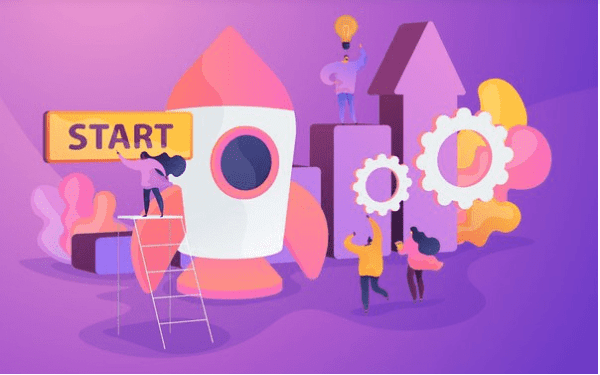
Significant Acquisitions and IPOs
Accelerators have also produced some significant acquisitions and IPOs. One such example is Reddit, which went through Y Combinator and was later acquired by Condé Nast. Another example is SendGrid, which went through Techstars and was later developed by Regarding IPOs; some notable examples include Dropbox, which went public in 2018, and ClassPass, which is reportedly considering going public. These companies demonstrate the potential for success by going through an accelerator program.
In a nutshell, accelerators have proven to be a valuable resource for startups looking to achieve success. By providing funding, mentorship, and connections, accelerators have helped to launch some of the most successful companies today.
